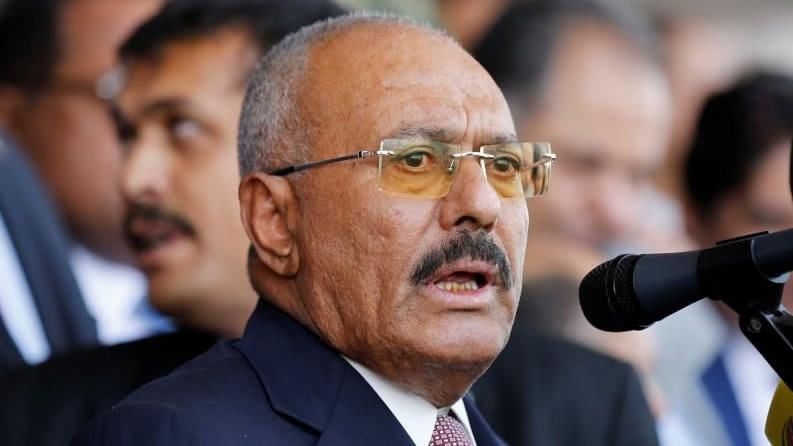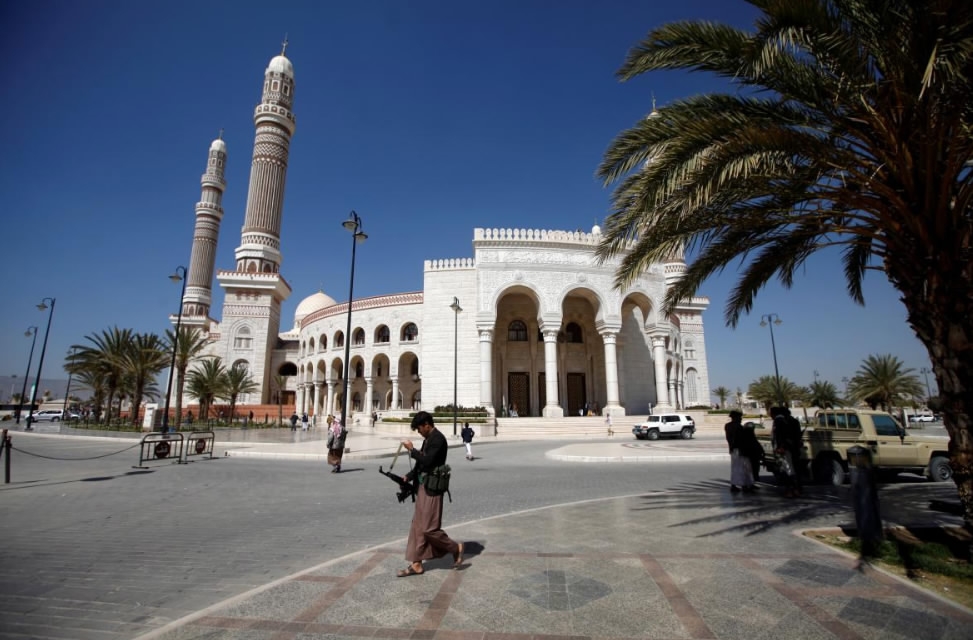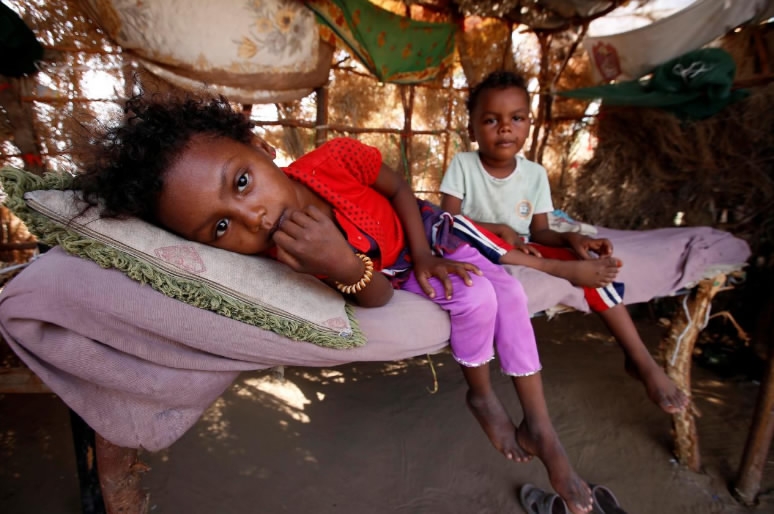
Politics
18:58, 02-Dec-2017
Yemen's Saleh ready to turn new page if Saudi-led attacks end
CGTN

Former Yemeni President Ali Abdullah Saleh on Saturday called on the Saudi-led coalition to pave the way for an end to nearly three years of war by ceasing attacks and lifting a siege.
Saleh, whose call comes as his supporters are currently fighting allied Houthi forces in the capital Sana'a, said on television that he was ready to turn a new page if the coalition agreed to his demands.
“I call upon the brothers in neighboring states and the alliance to stop their aggression, lift the siege, open the airports and allow food aid and the saving of the wounded and we will turn a new page by virtue of our neighborliness,” Saleh said in a televised speech.
“We will deal with them in a positive way and what happened to Yemen is enough,” he added.

A supporter of Yemen's former president Ali Abdullah Saleh is seen with a weapon near al-Saleh mosque before the weekly Friday prayers in Sana'a, Yemen, December 1, 2017. /Reuters Photo
A supporter of Yemen's former president Ali Abdullah Saleh is seen with a weapon near al-Saleh mosque before the weekly Friday prayers in Sana'a, Yemen, December 1, 2017. /Reuters Photo
The Saudi-led coalition welcomed Saleh’s remarks.
In a statement carried by the Saudi-owned Al-Hadath channel, the coalition said it was “confident of the will of the leaders and sons” of Saleh’s General People's Congress (GPC) party to return to Arab fold.
The coalition says Saleh betrayed Arabs by joining Houthi-led forces who they say are aligned with non-Arab Iran.
Saleh and Houthi forces have fought the Saudi-led coalition which intervened in Yemen in 2015 aiming to restore the internationally recognized government of President Abd-Rabbu Mansour Hadi after the Houthis forced him into exile.
The clash between Saleh's supporters and the Houthis underscores the complex situation in Yemen, one of the poorest countries in the Middle East, where a war between the Iran-aligned Houthis and the Saudi-backed Hadi has caused one of the worst humanitarian catastrophes in recent times.
Saleh stepped down after 33 years in office in 2012, following months of Arab Spring protests against his rule, but remained leader of the GPC, the country’s largest political party.

Children rest on a bed at their family hut at a poor neighborhood on the outskirts of the Red Sea port city of Hodeida, Yemen, November 12, 2017. /Reuters Photo
Children rest on a bed at their family hut at a poor neighborhood on the outskirts of the Red Sea port city of Hodeida, Yemen, November 12, 2017. /Reuters Photo
The Saudi-led coalition began the blockade on Nov. 6 after Saudi Arabia intercepted a missile fired from Yemen toward its capital Riyadh. A second missile was shot down on Nov. 30.
The coalition has closed air, land and sea access in a move it says is meant to stop a flow of Iranian arms to the Houthis, who control much of northern Yemen. The blockade has cut food imports to seven million people on the brink of famine.
Earlier this week the coalition partially eased its blockade to let aid into the ports of Hodeidah and Salif and UN flights into Sana'a. But aid shipments cover only a fraction of Yemen’s needs, since almost all food, fuel and medicine are imported.
The United Nations appealed on Friday to the Saudi-led military coalition to fully lift its blockade of Yemen, saying up to eight million people were “right on the brink of famine.”
Source(s): Reuters

SITEMAP
Copyright © 2018 CGTN. Beijing ICP prepared NO.16065310-3
Copyright © 2018 CGTN. Beijing ICP prepared NO.16065310-3